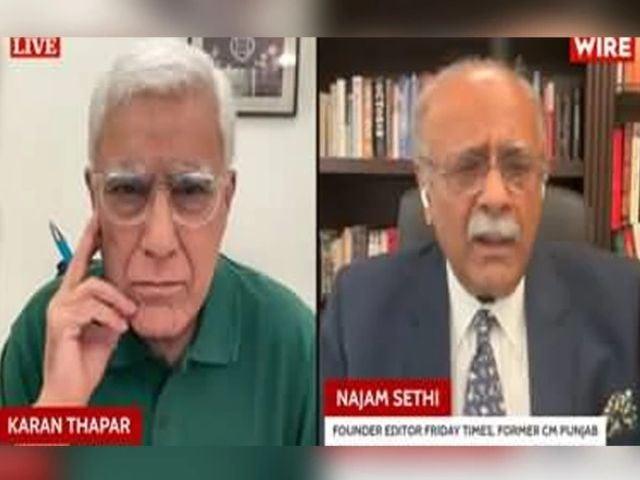The outstanding Pakistani journalist and political analyst Najam Sethi, in an interview with the main Indian journalist Karan Thapar, explained the Pakistan nuclear doctrine that states that Islamabad’s policy is based on the belief that if the country faced the existential threat of India, it would be justified in the launch of a nuclear strike, accepting the consequences of the following consequences.
Sethi emphasized that this position is the main reason why Pakistan has been consistently refused to sign the NO First Use Treaty.
The outstanding Pakistani journalist and political analyst Najam Sethi warned that if India tries to block the Pakistan water supply or carry out acts of economic strangulation, Islamabad can resort to the use of nuclear weapons in self -defense.
During the televised interview, where the two journalists approached increasing tensions between the two neighbors after Pahalgam’s recent attack, Sethi described India’s accusations against Pakistan as “without foundation” and described the incident as a false flag operation.
He claimed that the powerful elements within the establishment of security and intelligence of India or “the deep state” was probably involved.
“There are still no responses about the failure of the Indian security forces and intelligence agencies to prevent the incident,” he said.
He pointed out that the Pakistani authorities have responded calmly and responsibility, without inflaming tensions or emitting unsecured contrademands. “Unlike Indian media, which avoid asking difficult questions about their leadership, Pakistani media and officials have maintained a restricted position,” said Seth. “If there is any credible evidence, it must be presented to the international community, not simply transmitted nationwide for the political mileage.”
The former Punjab main minister, the former caregiver, added that the public feeling in Pakistan remains greatly inflexible by Indian accusations, and most people treat statements as exaggerated or not very serious.
However, he emphasized that the Pakistani government seriously sees the situation and is preparing for any eventuality.
When addressing the questions about nuclear threats, Sethi said that Pakistan’s nuclear doctrine includes the defensive use of weapons under existential threats. “As one of our former prime ministers said, we do not build nuclear weapons to celebrate religious festivals,” he said. “If India crosses a red line, trying to block water, invade the Pakistani or economically strangle territory to Karachi, a nuclear response cannot be ruled out on our own soil.”
Sethi also highlighted the regional dimensions of the crisis, stating that China, with its growing strategic investments and interests in Pakistan, is closely observing developments. “It’s not just a bilateral issue between India and Pakistan,” he said. “China’s participation, through economic investment and military cooperation, means that the consequences of any escalation could extend far beyond southern Asia.”
He concluded urging India to accept an independent international investigation, possibly involving the United States or other world stakeholders, to resolve the issue transparently and avoid additional instability.




